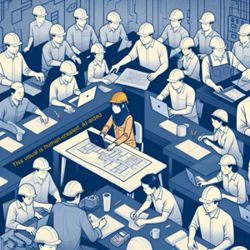
All smiles: Anwar taking pictures with Malaysians at an event in Imperial hotel in Tokyo. — Photo taken from Anwar’s Facebook page
KUALA LUMPUR: Malaysia, which has long looked to Japan and South Korea as models for economic development, is now also interested in learning from China, says Prime Minister Datuk Seri Anwar Ibrahim.
“We need to be open to revise any policy that has been in place for 40 years,” he told Asahi Shimbun in an interview in Tokyo on Sunday.
He was referring to the Look East Policy that fourth prime minister Tun (then Datuk Seri) Dr Mahathir Mohamad introduced in 1982 to learn economic modernisation strategies primarily from Japan and South Korea.
“I wouldn’t say ‘East’ (in this policy) means Japan and South Korea minus China. Now, when we say ‘Look East,’ it’s East (including China),” he was quoted as saying by the Japanese newspaper, according to Bernama.
Anwar added that because digital technologies, cybersecurity and other issues are changing the world, Malaysia needs to expand on the decades-old policy while continuing its aspects that remain beneficial.
The Prime Minister was on a five-day working visit to Tokyo from Dec 15 to attend a summit celebrating the 50th anniversary of the friendship and cooperation between Japan and Asean.
Malaysia, he said, advocates a “fiercely independent” foreign policy, and the country will deal with China depending on Malaysia’s interests.
He said when he was in the United States recently (for Asia-Pacific Economic Cooperation 2023), he was asked why Malaysia was tilting towards China.
He replied: “Because they’re investing more.”
But Anwar said Malaysia will firmly negotiate with China over territorial disputes in the South China Sea and not allow any unilateral action by Beijing.
The Prime Minister also described Japan as a “very important strategic partner”, adding that Malaysia’s relationship with Japan should be expanded under the Look East Policy such as sharing the Japanese work ethic and its technologies.
According to Asahi Shimbun, Japan announced on Dec 16 that it will provide equipment for warning and surveillance activities worth JPY400mil (RM13mil), including rescue boats and drones, to the Malaysian military under the official security assistance programme.
Anwar emphasised that the defence equipment is designed to help Malaysia protect its territorial waters and does not include any submarines or large aircraft.
“The assistance is mainly for our own security needs, not for offensive or aggressive means,” it quoted Anwar as saying.
Meanwhile, Anwar attended a high-tea event with the Malaysian diaspora at the Imperial Hotel in Tokyo on Monday.
There were 416 attendees ranging from students to those working and residing in Japan.
Also present at the event were Foreign Affairs Minister Datuk Seri Mohamad Hasan and Investment, Trade and Industry Minister Tengku Datuk Seri Zafrul Abdul Aziz.
Anwar spoke about the need for Malaysians to change their mindset and free themselves from the racial and religious divisions that undermine unity.
To a concern from a postgraduate student that their salaries are not commensurate with their qualifications when they return home, Anwar said the government is also looking into ways to improve wages for all.
Another student voiced concern that students sent to Japan are opting to remain and work there after completing their studies.
Anwar replied that they are encouraged to work overseas, especially when they can learn the Japanese work culture, but should return and contribute to their country when the time comes.
Prior to the event, Anwar and his wife Datuk Seri Dr Wan Azizah Wan Ismail were at the Imperial Palace where they had an audience with Emperor Naruhito and Empress Masako.





































